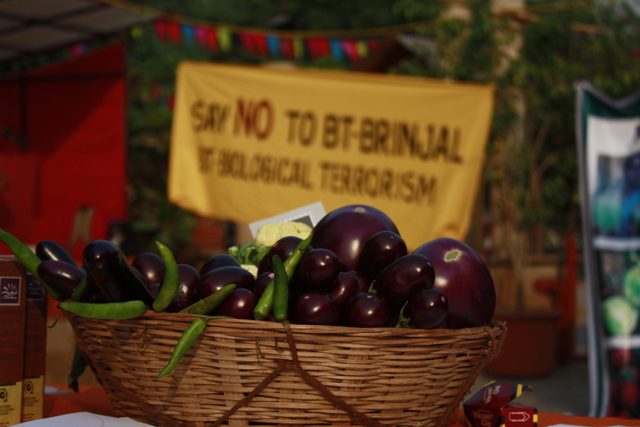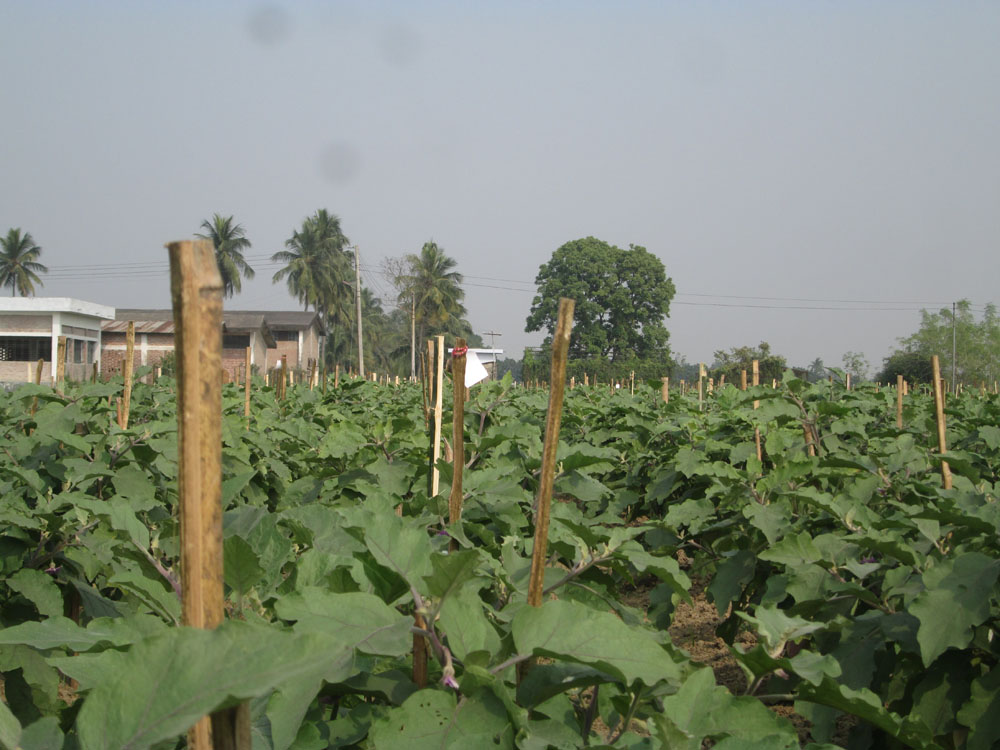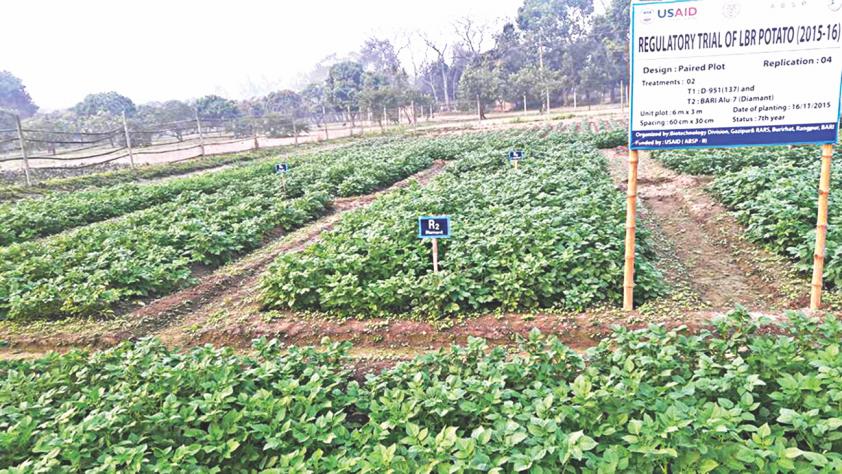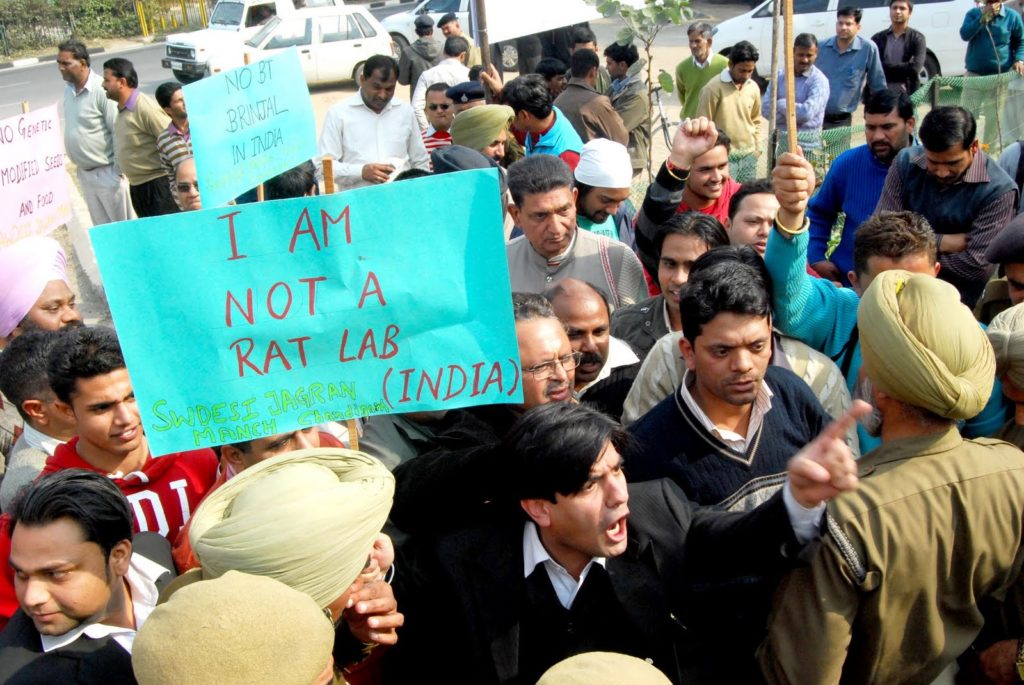
Rewind to 2010. Monsanto. India. It was a sign that things weren’t right. Warnings were given by ex-employees, retirees of Monsanto who had nothing to lose. Did we listen? Despite all the warnings, governments on a global scale accept Monsanto proposals without much questioning.
It could be that Monsanto appears as a savior to those who are starving; never mind the first world country complaining. But when the agriculture is designed with a ‘terminator gene’ incorporated so that farmers need to buy fresh seeds at inflated prices from Monsanto, is this not a crime?

According to Jagadisan, the then 84-year-old retiree from Monsanto, he left the company after Monsanto’s manipulation of government regulatory agencies to get commercial approval. Working for the company for 2 decades, Monsanto, he said “used to fake scientific data,” particularly in India. The debate at the time focused on the genetically modified Bt brinjal (eggplant).
Forward to 2016.
In early February 2016, Bangladeshi farmers are abandoning their brinjal crops. Massive crop failures, and the expense to replace and cultivate crops, is so high that new farmers literally have to be recruited.
According to GMWatch, the project has been ongoing, with a third cultivation on its way. Reports weren’t published on the first two cultivations, with the GM industry being unusually silent about the issue. Bt brinjal crops are dying, and GM seeds are expensive.

Bt brinjal propped by cane, suggesting a weakness in crops. Source: GMWatch.org Photo:Photo: UBINIG
What is surprisingly non-startling being the stories of farmers continuing on with brinjal, but using non-GMO seed. Massive yields with “74 kilos of brinjals [harvested] from the field,” have been reported so far this year. Farmers are opting for non-GM seeds, according to the report. Their yields are higher and stronger.
The Near Future: 2016 Onwards…
Enter BARI, the Bangladesh Agricultural Research Institute. When researching the institute, a name related to Monsanto appears.
“Bangladeshi scientists have successfully field-tested a genetically modified (GM) potato resistant to late blight…”
“We’ll seek approval from the regulators after necessary paperwork and data analysis once potato is harvested in February-March,” BARI Director General Dr. Rafiqul Islam Mondal said. “When released, blight resistant potato will be the second commercially released GM food crop in South Asia after Bt Brinjal, which was also released by Bangladesh in 2013.”

GM potato in Rangpur. SOURCE: The Daily Star. Photo: BARI
Hang on…the data to release the brinjal was inaccurate and incomplete, so said an ex-Monsanto employee in 2010. The brinjal crops failed in 2016, so said the farmers who now opt for non-GM high yield seed.

Brinjal and potato are essentials in the Indian diet. Green activist Farida Akhtar of UBINIG, an NGO, who is responsible for setting up one of the largest community seed banks in the world, said the efforts made by scientists to pursue “conventional breeding process, instead of genetic engineering, in developing such traits in potato,” would have been preferred.
The future for already struggling farmers in India, is to be seen.
Further resources here.
This Article (We were warned about Monsanto) is a free and open source. You have permission to republish this article under a Creative Commons license with attribution to the author AnonWatcher and AnonHQ.com.





Expected to see Donald Trump in this line up.
Love that picture at the top.